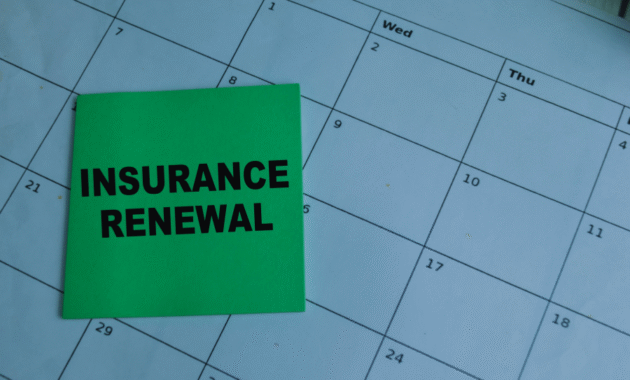Renewing your insurance license is a crucial responsibility that ensures you remain compliant with state laws and maintain your professional standing. With regulations varying by state and continuing education (CE) requirements evolving, it’s easy to feel overwhelmed. This guide breaks down the insurance license renewal process into manageable steps, providing clarity and confidence for agents across the United States.
Understanding the Importance of Insurance License Renewal

Renewing your insurance license is more than just a formality; it’s a legal requirement and a sign of your commitment to professionalism. Failure to renew on time can result in penalties, suspension, or the need to reapply from scratch.
Why Timely Renewal Matters
- Legal Compliance: Avoid fines or license suspension.
- Business Continuity: Maintain your ability to legally sell insurance.
- Reputation Management: Show clients and employers your dedication to staying up-to-date.
Frequency of License Renewal
Most states require insurance license renewal every 1 to 2 years, though the exact frequency depends on your state and license type.
Steps to Renew Your Insurance License
Step 1: Know Your Renewal Deadline
Your state’s Department of Insurance (DOI) sets a renewal window, usually opening 60–90 days before license expiration. Be proactive in marking this on your calendar.
Step 2: Complete Continuing Education (CE) Requirements

Most states require licensed agents to complete a specified number of CE hours.
Common CE Requirements:
- Life and Health License: Typically 24 hours every 2 years
- Property and Casualty License: Usually includes ethics and law components
- Annuity or Long-Term Care: May require special CE courses
Tip: Choose a state-approved CE provider and keep proof of completion.
Step 3: Submit Your Renewal Application Online
The renewal process is generally handled online through your state DOI’s licensing portal or via the National Insurance Producer Registry (NIPR).
What You’ll Need:
- National Producer Number (NPN)
- Proof of CE completion
- Credit card or electronic payment method
Step 4: Pay the Renewal Fee
Renewal fees vary by state and license type, typically ranging from $30 to $150.
Common Mistakes to Avoid During License Renewal
1. Missing CE Deadlines
Start CE early to avoid last-minute scrambles or delays.
2. Using Unapproved CE Providers
Always verify that the provider is recognized by your state DOI.
3. Incorrect or Incomplete Applications
Double-check all submitted information before payment.
4. Letting Your License Expire
Reinstatement often involves higher fees or retesting. Avoid it.
License Renewal by State: Key Variations
Each state has specific rules for renewal. Here are a few examples:
California
- CE: 24 hours every 2 years, including 3 hours of ethics
- Renewal Fee: $188 (individual)
Texas
- CE: 24 hours every 2 years, 2 must be ethics
- Grace Period: 90 days (with late fee)
Florida
- CE: 24 hours every 2 years
- Must include 5-hour law and ethics update
Visit your state’s DOI website or NIPR.com for the most accurate information.
Using NIPR for License Renewal

The National Insurance Producer Registry (NIPR) streamlines the renewal process across most states.
Benefits of Using NIPR:
- Centralized platform for multi-state agents
- Real-time updates on license status
- Easy access to CE completion records
How to Use NIPR:
- Visit nipr.com
- Log in with your NPN
- Follow the renewal prompts for your state
Continuing Education Tips for a Stress-Free Renewal
1. Spread Out Your CE Courses
Don’t wait until the last month to complete your requirements. Aim to do a few hours each quarter.
2. Choose Relevant Topics
Pick courses that enhance your expertise and directly benefit your clients.
3. Use Trusted CE Providers
Stick with well-reviewed, state-approved providers to avoid compliance issues.
Special Considerations for Non-Resident Agents
If you hold licenses in multiple states, NIPR helps manage renewals. However, CE requirements are generally only based on your home state.
Non-resident agents must still track and comply with each state’s renewal timelines.
What Happens If You Miss the Renewal Deadline?
Grace Periods
Some states allow a grace period—usually 30 to 90 days—where you can renew with a late fee.
Lapsed Licenses
If you go beyond the grace period, your license may lapse, requiring reapplication, additional fees, or retesting.
Also Read : Electric Vehicle Insurance: What You Need To Know Before You Buy
Conclusion
Renewing your insurance license doesn’t have to be stressful. By staying organized, completing your CE on time, and using resources like NIPR, you can make the process smooth and straightforward. Your license is your livelihood—treat it like the professional asset it is.
Frequently Asked Questions (FAQs)
Q1: Can I renew my license before completing my CE requirements?
No. Most states require all CE hours to be completed before applying for renewal.
Q2: What happens if I don’t renew my license on time?
You may face late fees, suspension, or be required to reapply and retest.
Q3: How can I find out my license expiration date?
Check your state’s Department of Insurance website or NIPR.com.
Q4: Can I renew my license manually instead of online?
Some states may allow this, but online renewal is generally faster and preferred.
Q5: Do I need to take CE courses every year?
In most states, CE is required every two years, not annually.




